


In the hustle and bustle of modern life, sleep often takes a backseat to our busy schedules and endless to-do lists. While there are various factors that contribute to sleeplessness, one aspect that often goes overlooked is the connection between the foods we consume and the quality of our sleep. In this article, we will share some top foods that make you sleepy.
Certain foods can trigger a sleep-inducing hormone to be released. Knowing what kind of foods can help improve sleep is especially important for those with insomnia or sleep deprivation. A study from the Journal of Clinical Sleep Medicine also found that foods that are high in fiber and lower saturated fat can help you with a much deeper and restorative sleep.
First of all, have you ever noticed how a heavy meal or a late-night snack can affect your ability to fall asleep or the quality of your rest? The truth is, what we eat has a significant impact on our sleep patterns and overall sleep quality. In this blog, we will share with you the top 10 foods that make you sleepy naturally. We will explore the science behind their sleep-inducing properties and how they can improve the duration and quality of our rest.
Tryptophan, an essential amino acid found in various foods, plays a pivotal role in promoting a restful sleep. It serves as a precursor to serotonin, a neurotransmitter that regulates mood and sleep, and melatonin, the hormone responsible for controlling our sleep cycles. When we consume foods rich in tryptophan, such as turkey, our bodies can use this amino acid to produce more serotonin, which can have a calming and sleep-inducing effect. Understanding the science behind tryptophan’s role in sleep can help us make right dietary choices to improve sleep quality.
Turkey, often associated with the drowsiness that follows a Thanksgiving feast, is a fantastic source of tryptophan. To promote sleep, consider incorporating turkey into your diet in creative and delicious ways. Whether you opt for a turkey sandwich with whole-grain bread for lunch or prepare a lean turkey stir-fry for dinner, you’ll be providing your body with the tryptophan it needs to achieve better sleep quality naturally.
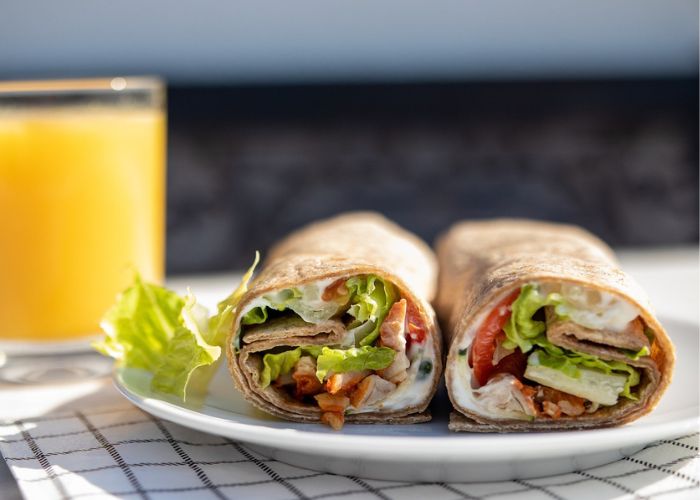
Warm milk, a timeless bedtime tradition, has been cherished for its soothing and sleep-promoting properties for generations. The idea behind warm milk lies in its combination of tryptophan and relaxation-inducing warmth. When consumed before bed, warm milk can help increase serotonin levels, making you feel more relaxed and prepared for a good night’s sleep. Whether enjoyed plain or enhanced with a touch of honey and cinnamon, warm milk offers a comforting and effective way to promote a good night’s rest naturally.
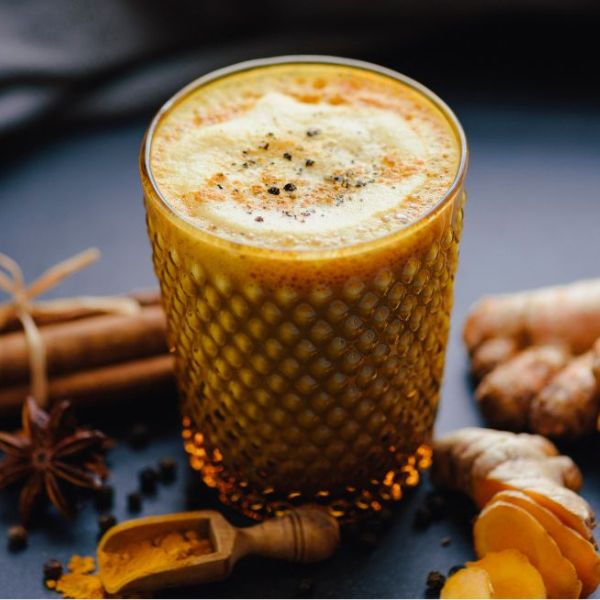
When it comes to foods that can naturally promote good sleep, melatonin-rich options are a hidden gem. Melatonin is the hormone responsible for regulating our circadian rhythms, signaling to our bodies when it’s time to switch off and rest. Let’s explore two fantastic melatonin-rich choices that can help you enjoy a more peaceful night’s sleep.
Cherries, with their sweet and tart flavor, are often hailed as nature’s sleep aid due to their impressive melatonin content. Nutrition research has revealed that consuming cherries or tart cherry juice can lead to increased melatonin levels in the body, promoting sleep and contributing to a more restful nights. To make the most of this natural sleep remedy, consider incorporating cherries into your evening routine.
Bananas, known for their potassium and magnesium content, also contain melatonin and other sleep-boosting compounds. These nutrients promote muscle relaxation, ease tension, and prepare your body for a healthy sleep. Incorporating bananas into your evening routine is easy and delicious. Consider whipping up a banana-based dessert, like a creamy banana pudding or a banana-infused ice cream. The natural sweetness of bananas makes for a guilt-free treat that can contribute to a good night’s rest.
When it comes to improving sleep quality naturally, foods rich in magnesium deserve a place in your diet. Magnesium, a vital mineral, plays a crucial role in regulating neurotransmitters and muscle relaxation. It is therefore an essential component in the quest for quality sleep. Let’s discover below one such magnesium-rich option that can help regulate sleep in a natural way.
Did you know that almonds, besides being delicious and nutritious, can improve sleep? These delightful nuts offer a natural solution to sleeplessness, thanks to their magnesium content. Magnesium helps relax muscles and calm the nervous system, facilitating a peaceful transition into sleep. Incorporating almonds into your diet can make a significant difference in your sleep quality.
Herbs, particularly when prepared as soothing teas, are valued for their natural ability to promote sleep. Their efficacy stems from unique compounds that interact with the body to induce relaxation and tranquility. Herbs like chamomile, lavender, and valerian possess calming effects, reducing stress and anxiety. Others, like passionflower and lemon balm, relax muscles. Adaptogenic herbs like ashwagandha and holy basil help manage stress. Certain herbs, including valerian and skullcap, regulate sleep cycles, and peppermint or ginger teas can alleviate digestive discomfort that disrupts sleep. Beyond their chemical properties, the aroma and warmth of herbal tea provide sensory relaxation, signaling the body to switch off.
Incorporating herbal teas into a bedtime routine creates a calming ritual that contributes to improved sleep quality.
Chamomile tea has long been celebrated as a natural sleep aid, offering a soothing and gentle way to enhance sleep. The secret behind chamomile’s sleep-inducing properties lies in its compounds. Apigenin, which binds to specific receptors in the brain, it’s known to promote sleepiness and reduce anxiety. This calming effect can help reduce the restlessness that often keeps us awake at night.
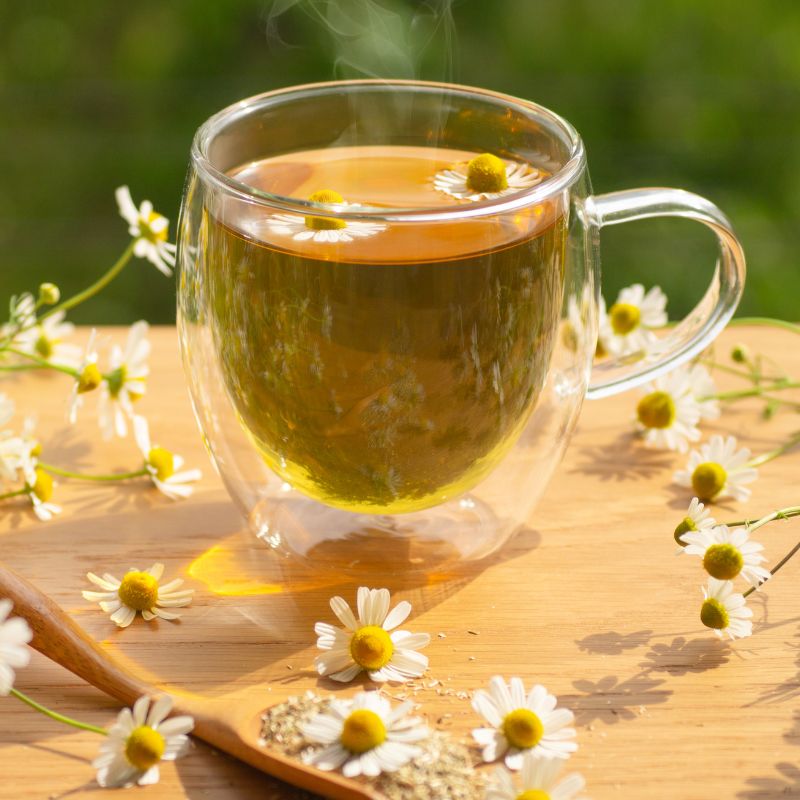
Lavender, with its delightful scent and calming properties, can help with falling asleep and reducing insomnia symptoms. The soothing aroma of lavender has been shown to have a tranquilizing effect on the nervous system, reducing stress and anxiety, two common culprits of sleeplessness. Incorporating lavender into your sleep routine can be as simple as placing a sachet of dried lavender flowers under your pillow or using a lavender-infused essential oil in a diffuser. Additionally, you can enjoy the benefits of lavender with a relaxing pre-sleep ritual.
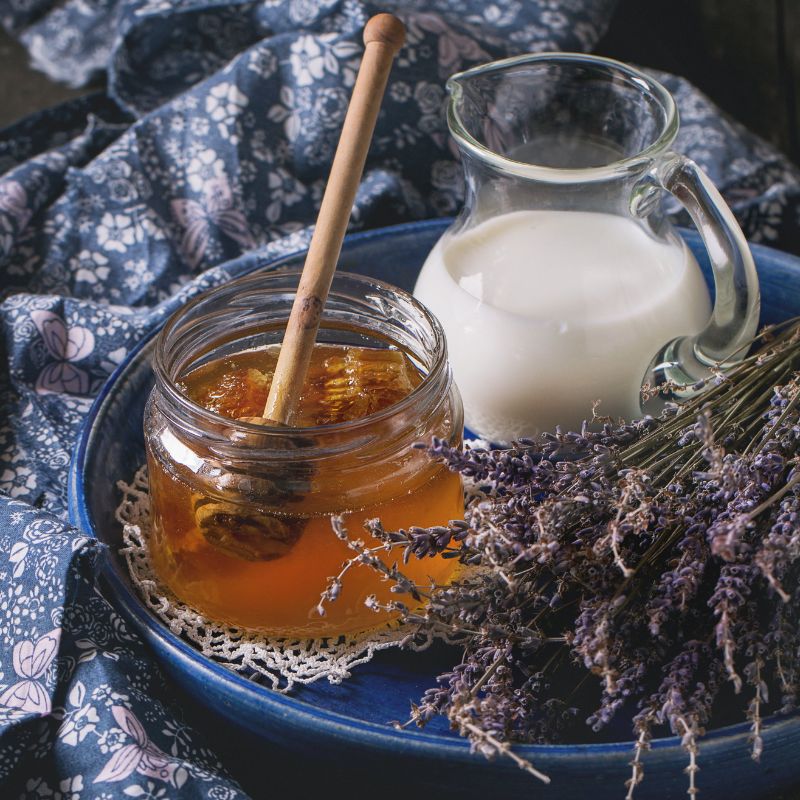
Carbohydrates not only play a significant role in our daily diet but also affect sleep. High-carbohydrate foods have been known to influence sleep patterns due to their role in facilitating the production of serotonin, a neurotransmitter associated with mood regulation and sleep-wake cycle. When we consume foods rich in carbohydrates, especially complex carbs like whole grains, they trigger the release of insulin. This hormone helps in the absorption of amino acids in the body. This process leaves more tryptophan, a precursor to serotonin, available to cross the blood-brain barrier and be converted into serotonin. As a result, higher serotonin levels can promote feelings of calmness and relaxation. This is why, falling asleep and staying asleep is much easier.
The relationship between carbohydrates and serotonin production is an interesting one when it comes to promoting sleep. Carbohydrates, such as those found in oatmeal, can have a significant impact on the brain’s serotonin levels. When we consume high-carbohydrate foods, they prompt the release of insulin, which, in turn, aids in the absorption of amino acids except for tryptophan. This results in an increased ratio of tryptophan to other amino acids in the bloodstream, allowing tryptophan to enter the brain more readily. Once inside the brain, tryptophan is converted into serotonin, a neurotransmitter known for its calming and mood-enhancing effects. This increase in serotonin levels can help us feel relaxed and more prepared for sleep.
Calcium, a mineral well-known for its role in maintaining strong bones and teeth, also plays a vital but often overlooked role in sleep regulation. The relationship between calcium and sleep is rooted in the interplay between various neurotransmitters and hormones involved in the sleep-wake cycle. Calcium aids the brain in converting tryptophan into melatonin, the hormone responsible for regulating sleep. Consuming foods rich in calcium can help promote the production of melatonin, enhance sleep quality, and improve overall sleep hygiene.
Cheese, with its rich calcium content, holds a special place among foods that promote healthy sleep. When we consume calcium-rich foods like cheese, it aids the brain in converting tryptophan, an amino acid found in cheese and other proteins, into melatonin. This process facilitates transition into sleep, helping us achieve a deeper and more restful sleep. Cheese not only satisfies our taste buds but also provides the essential calcium needed for a higher sleep efficiency.
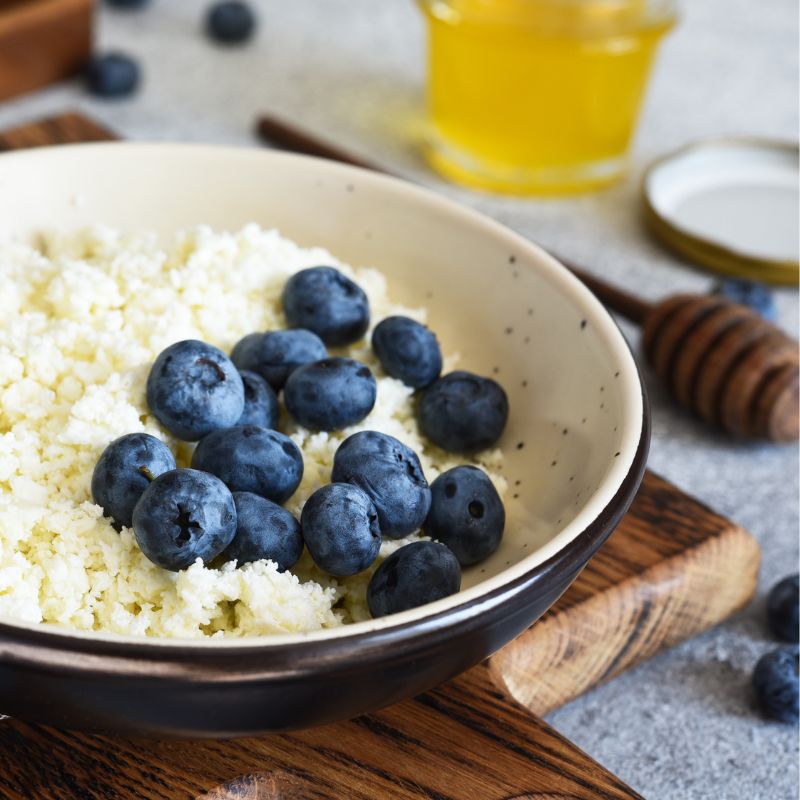
Herbal remedies have been relied upon for centuries as natural solutions for various health concerns. They continue to hold a special place in the realm of sleep improvement. These botanical treasures offer gentle yet effective methods for addressing sleep disturbances, anxiety, and restlessness. From the calming properties of valerian root to the soothing effects of lavender and passionflower, herbal remedies provide a holistic approach to fighting sleep problems.
Valerian root, an age-old herbal remedy, is celebrated for its remarkable ability to promote sleepiness and improve sleep quality. The secret to valerian root’s effectiveness lies in its natural compounds. It includes valerenic acid and isovaleric acid, which act as gentle sedatives and tranquillizers. These compounds work by enhancing the brain’s production and release of gamma-aminobutyric acid. This neurotransmitter helps calm the nervous system, reduce anxiety, and induce relaxation—essential factors for a peaceful night’s sleep. When used safely and in moderation, valerian root can be a valuable addition to your sleep routine.
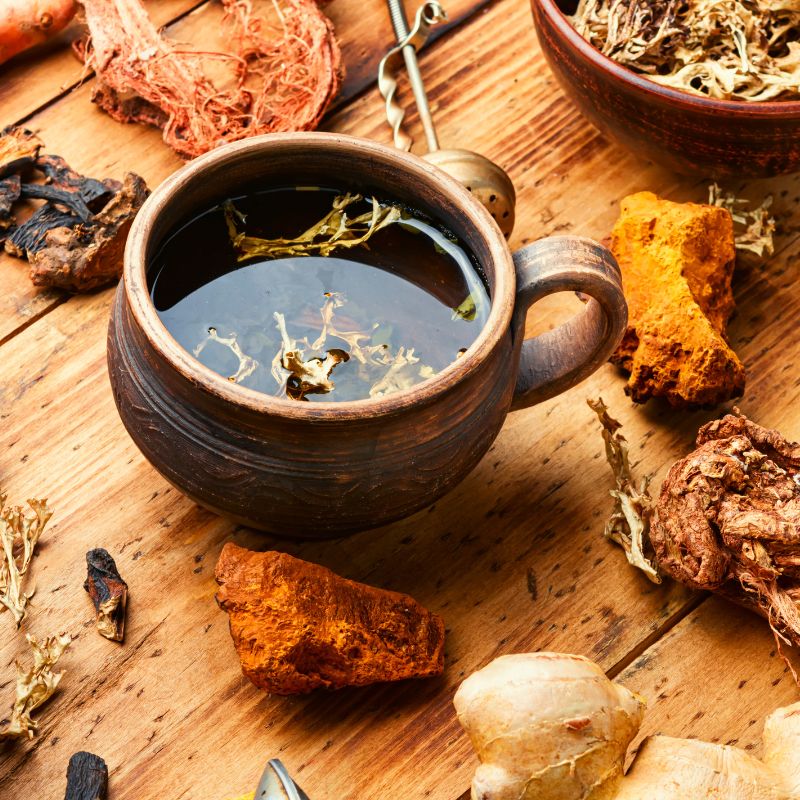
Now that you know what kind of foods can make you sleepy, what about those that keep you awake? Certain foods that we unknowingly consume may be the culprits of why we can’t fall asleep.
Some of these foods and drinks include:
Caffeine is a stimulant that can keep you awake. So avoid drinks that are high in caffeine such as coffee, tea, and soda. These could disrupt your sleep patterns and make it difficult for you to get the quality sleep you need.
High sugar content can cause a spike in blood sugar and lead to a sugar crash. You could find yourself waking up in the middle of the night just because of it. So, as much as possible, you should try to avoid candies, sweets or any sugary drinks.
Alcohol is also another factor that contributes to you being up at night. It may make you feel sleepy initially, but it can also disrupt your sleep cycle. This leads to poor-quality sleep and frequent awakenings.
Lastly, we have chocolate. Chocolates naturally contain caffeine, which would disrupt sleep if you take it before bed. So, consuming chocolate right before bedtime is what you want to avoid. Instead, try taking it in an earlier time of the day.
Incorporating sleep-promoting foods into your diet can be a holistic approach with benefits beyond improving sleep. These nourishing choices can also benefit various aspects of your overall health, including immune health and heart health. By making thoughtful food choices and incorporating these sleep-friendly ingredients into your diet, you not only improve sleep but also support your immune system and heart health.
By nourishing yourself with these natural sleep remedies and maintaining a balanced diet, you’ll be well on your way to nights filled with peaceful rest, stronger immunity, and a healthier heart.
St-Onge, M. P., Roberts, A., Shechter, A., & Choudhury, A. R. (2016). Fiber and Saturated Fat Are Associated with Sleep Arousals and Slow Wave Sleep. Journal of clinical sleep medicine : JCSM : official publication of the American Academy of Sleep Medicine, 12(1), 19–24. https://doi.org/10.5664/jcsm.5384